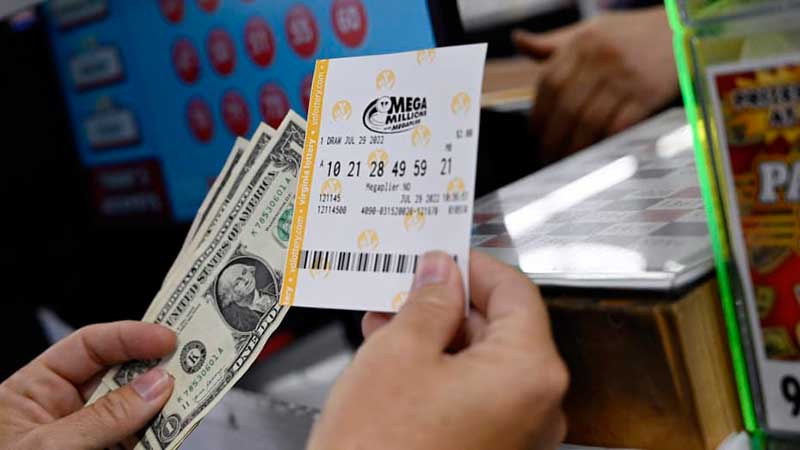Welcome to a fascinating journey through the history of lotteries. From their humble origins to the multi-billion dollar industry they are today, lotteries have captivated people’s imaginations for centuries. In this section, we will explore the exciting world of lottery history, uncovering interesting facts and remarkable wins that have changed lives forever.
Lotteries have been around for thousands of years, with some of the earliest recorded instances dating back to ancient China and the Roman Empire. Over the years, lotteries have evolved into various forms, with different games and methods of drawing winning numbers.
Despite their long history, lotteries continue to be a popular form of entertainment and a chance for people to win big. Who hasn’t dreamed of winning the lottery and becoming an instant millionaire?
Join us as we delve deeper into the world of lottery history, uncovering fascinating stories and intriguing statistics along the way.
Key Takeaways:
- Lotteries have a rich history that dates back thousands of years.
- There are various types of lottery games, each with their own unique rules and odds.
- Winning the lottery can be life-changing for individuals and communities.
- The evolution of lottery drawings has seen advancements in technology and methodology.
- Lotteries have had a significant impact on society, contributing to funding for public projects and education.
The Origins of Lotteries
The roots of lotteries can be traced back to ancient civilizations, including China, Egypt, and Rome. The first recorded signs of a lottery are keno slips from the Han dynasty in China. These slips were used to fund the construction of the Great Wall, and the game was called “baige piao,” which translates to “white dove ticket.”
In the Western world, lotteries were used to fund public projects, such as bridges, schools, and churches. The first recorded lottery in Europe was held in 1446 in the town of Bruges, Belgium, to raise funds for the repair of the city walls.
Today, lotteries have evolved into a variety of games, including scratch-offs, daily drawings, and multi-state games like Powerball and Mega Millions. These games generate billions of dollars in revenue each year and have become a staple of popular culture.
Lottery Statistics
| Type of Lottery Game | Odds of Winning |
|---|---|
| Powerball (Jackpot) | 1 in 292,201,338 |
| Mega Millions (Jackpot) | 1 in 302,575,350 |
| Scratch-offs | Approximately 1 in 3 |
While the odds of winning a jackpot may seem daunting, millions of people still play the lottery every day with the hopes of striking it rich. The thrill of the game and the possibility of winning big continue to draw players in, making lotteries a mainstay in the world of gambling and entertainment.
Notable Lottery Winners
Winning the lottery is a dream come true for many people. It’s an opportunity to change one’s life forever, and some of the biggest lottery jackpots have made that a reality for lucky winners. Here are a few notable examples:
| Winner | Lottery | Jackpot | Year |
|---|---|---|---|
| Mavis Wanczyk | Powerball | $758.7 million | 2017 |
| Gloria C. MacKenzie | Powerball | $590.5 million | 2013 |
| Richard Lustig | Florida Lottery | $1.05 million (total winnings) | 2016 |
| John and Lisa Robinson | Powerball | $528.8 million | 2016 |
These are just a few examples of the incredible wins that have occurred throughout lottery history. But winning the lottery isn’t just about the jackpot – it’s also about what winners do with their newfound wealth.
“Money doesn’t change you, it reveals who you are.” – Jay-Z
Some lottery winners use their winnings to help others, such as Cynthia Stafford, who won $112 million in the California Lottery and has used her wealth to fund various charities and organizations. Others, like former lottery winner William Post, have had their lives ruined by the sudden influx of cash.
Despite the risks and challenges, winning the lottery remains a dream for many. Who knows – you could be the next big winner!
Evolution of Lottery Drawings
Lottery drawings have come a long way since their humble beginnings. Today, most lottery games use computerized systems to generate winning numbers, but it wasn’t always this way.
Traditional Mechanical Methods
In the early days of lotteries, winning numbers were selected using traditional mechanical methods. One such method involved drawing numbered balls from a spinning drum. Another method involved using a deck of cards with each card representing a number.
While these methods were simple and effective, they had their drawbacks. For example, the balls used in the drum method could become worn or damaged, affecting the fairness of the drawing. Similarly, the cards used in the deck method could be marked or tampered with, potentially compromising the integrity of the game.
The Introduction of Computerized Systems
In the 1980s, lottery operators began to introduce computerized systems for generating winning numbers. This allowed for greater accuracy and security in the drawing process. Instead of using physical balls or cards, a computer program would randomly generate the winning numbers.
Today, computerized systems are the standard for most lottery games. These systems use complex algorithms and encryption technology to ensure that the winning numbers are truly random and cannot be tampered with.
The Role of Lottery Numbers
The lottery numbers themselves also play a significant role in the drawing process. In most games, players must select a set of numbers in order to have a chance at winning the jackpot. These numbers can be chosen manually or through a computer-generated “quick pick” option.
Interestingly, certain numbers have proven to be more popular than others. According to lottery statistics, the most commonly picked numbers are 7, 11, and 23. Conversely, the least commonly picked numbers are 20, 37, and 50.
The evolution of lottery drawings has made the process more reliable and secure than ever before. Whether you prefer traditional mechanical methods or modern computerized systems, one thing remains constant: the thrill of waiting to see if your numbers will be called and the possibility of winning big.

Uncovering Lottery Archives
Lottery archives provide a treasure trove of information for researchers and players alike. By analyzing past results, patterns and trends can emerge, offering valuable insights into potential winning strategies for future games.
One interesting trend that emerges from lottery history is the prevalence of certain numbers. For example, according to a study of the Mega Millions lottery, the numbers 2, 31, and 5 have been drawn the most frequently from 2017 to 2021. On the other hand, numbers 50, 1, and 10 have been drawn the least frequently during the same period.
Studying the lottery archives can also reveal the impact of changes to the game. In 2013, the Powerball lottery updated its rules to increase the odds of winning smaller prizes, while decreasing the odds of winning the jackpot. This change resulted in more frequent wins for players, but also led to larger jackpots due to rollovers.
“The study of lottery archives can provide valuable insights into the history and evolution of lotteries, as well as how they have impacted society. It is an essential tool for researchers and players alike.”
Overall, lottery archives offer a wealth of information for those interested in the history and strategy of lottery games. By huaybee168.com taking advantage of this resource, players can increase their chances of winning while also gaining a deeper understanding of the fascinating world of lotteries.
The Impact of Lotteries in Society
Lotteries have had a significant impact on society since their inception, providing a means for funding public projects and contributing to the betterment of communities. In this section, we will explore the social and economic effects of lotteries and examine how the sale of lottery tickets has supported various initiatives.
Funding Education through Lotteries
One of the most significant contributions of lotteries has been the funding of education. In the United States, 44 states operate lotteries, and a portion of the revenue generated from ticket sales is allocated to education. According to data from the National Conference of State Legislatures, in 2020, state lotteries contributed $23.2 billion to education.
In addition to funding general education initiatives, some lotteries have specific programs dedicated to supporting students. For example, the Georgia Lottery’s HOPE Scholarship Program provides financial assistance to students pursuing higher education, including college and technical school. Since its launch in 1993, the program has awarded over $12 billion in scholarships and grants.
Supporting Infrastructure and Public Projects
Lottery revenue has also been used to fund infrastructure and other public projects. In the UK, the National Lottery has contributed more than £42 billion to various projects since its launch in 1994. This funding has supported initiatives such as the construction of Olympic facilities, the restoration of historic landmarks, and the development of community facilities.
Similarly, in the US, lottery revenue has been used to fund transportation projects, environmental conservation, and public safety initiatives. For example, the Virginia Lottery’s “Game On! Virginia” program uses revenue to support sports programs in public schools, providing equipment, uniforms, and other supplies to students.
The Popularity of Lottery Tickets
Despite some criticism, lotteries remain popular around the world. In the US alone, lottery ticket sales totaled $91.2 billion in 2020. This popularity can be attributed to several factors, including the potential for life-changing winnings and the ease of access to tickets.
In recent years, the growth of online lottery sales has made purchasing tickets even more convenient. Players can now buy tickets online, view lottery results, and claim prizes without leaving their homes. This trend has opened up lottery games to a wider audience, increasing revenue for public projects and providing entertainment and excitement for players.
“The lottery provides people with a sense of hope and possibility. For many, buying a lottery ticket is a small investment in the dream of a better life.”
In conclusion, lotteries have had a significant impact on society over the years, providing funding for education, infrastructure, and other public projects. Despite some criticism, lotteries remain popular, offering players the potential for life-changing winnings and a sense of hope for a better future.
Conclusion
Lottery games have a rich and fascinating history that spans centuries. From humble beginnings as a means to fund public projects, lotteries have evolved into a global phenomenon that offers the chance for life-changing wins.
Despite the controversies that have arisen around lottery games, their enduring popularity remains a testament to their ability to bring excitement and hope to players around the world.
As we have seen throughout this journey through lottery history, these games have the power to make an impact on society by contributing to funding for education, infrastructure, and other public projects.
As long as there are players willing to take a chance and try their luck, lottery games will continue to thrive and evolve. So why not join in on the fun and see what the future holds for the exciting world of lottery games?
FAQ
What is lottery history?
Lottery history refers to the study and exploration of the origins, evolution, and significant events related to lotteries throughout time.
How have lotteries evolved over time?
Lotteries have evolved from early recorded instances used to fund public projects to modern-day games with various formats and participation methods.
What are some notable wins in lottery history?
Lottery history is filled with remarkable wins that have changed lives forever, from life-changing jackpots to heartwarming stories of generosity.
How do lottery drawings work?
Lottery drawings have transitioned from traditional mechanical methods to computerized systems, and they involve the random generation of numbers that determine the winners.
Why is studying lottery archives important?
Studying lottery archives can reveal patterns and trends that may provide insights for future players, helping them make informed decisions.
What impact do lotteries have on society?
Lotteries contribute to society by funding various public projects such as education, infrastructure, and other initiatives aimed at improving communities.
Why are lottery games so popular?
Lottery games continue to be popular due to the excitement and chance of winning life-changing prizes they offer, appealing to a wide range of players.















